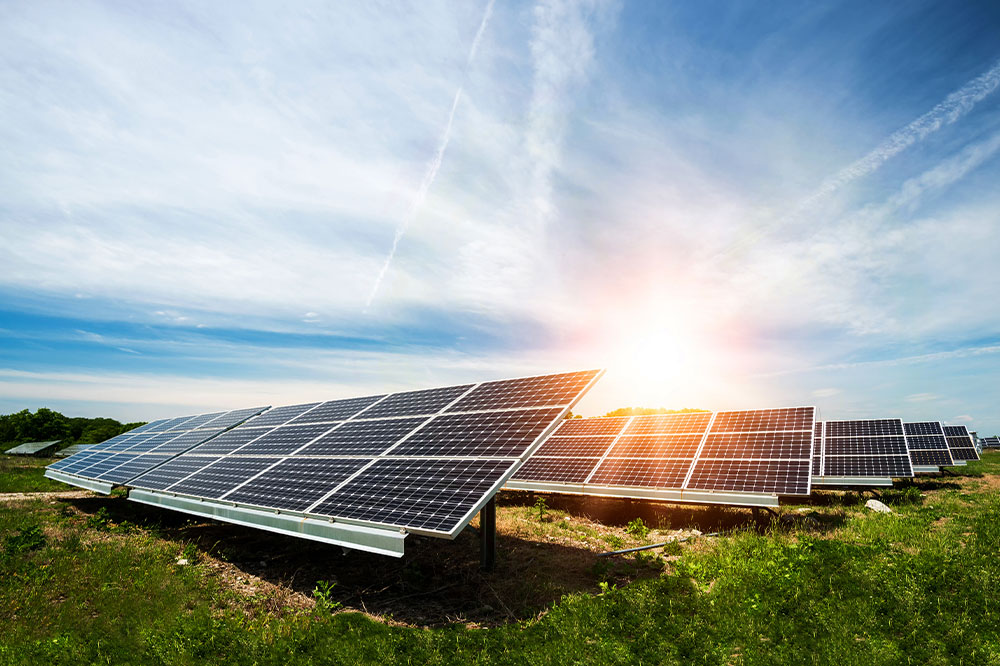A definitive guide to solar energy and its advantages and drawbacks

The modern world is characterized by an overwhelming population explosion and a consequent tussle for natural resources. The fast-depleting natural resources supply poses a serious threat to future generations, causing a dire need for sustainable alternatives. Solar energy is among the most commonly utilized alternative fuel sources today and is being utilized in homes and offices at small-scale and large-scale levels. This article discusses how solar energy works, its advantages and drawbacks, and its functions:
How does solar energy work?
Extraction of solar cells : Solar energy is powered by panels made of solar or photovoltaic cells, generated by blending melted crystalline silicon with gallium or boron. Each silicon ingot or “wafer” thus formed comprises a positively charged and a negatively charged silicon layer.
Manufacturing of solar panels : These solar cells are used to manufacture large, black solar panels. The silicon semiconductors in these panels absorb sunlight to generate electricity.
Electricity generation : The positively and negatively charged silicon layers in the ingots in solar cells form an electric field in the panel. When the panels absorb sunlight, the electrons in the ingots separate from the atoms. The electrical field around each wafer sets these electrons in motion, generating direct current (DC), which is converted to alternating current (AC) and utilized in homes and offices.
Electricity utilization : The AC electricity passes the electric panel and powers your home. The regular electricity supply can compensate for any shortage of solar energy.
Advantages of solar energy
Natural resource conservation : Solar energy is a renewable source facilitating natural resource conservation, contributing to a sustainable future.
Environment-friendly alternative : Solar power plants do not cause air pollution or emit greenhouse gasses, which is a significant step towards a healthier environment.
“Native” energy source : Solar energy is referred to as a “native” energy source, as it is available across the planet and generates local employment.
Reduction in energy bills : Replacing traditional electric power with solar energy can reduce your energy bills. Moreover, you can avail of credit for unutilized surplus energy.
Unaffected by power outages : Solar energy can continue functioning even during power outages.
Disadvantages of solar energy
Space utilization : Solar panels occupy space on rooftops and open areas. Thus, thorough planning and space allocation is required before solar panel installation.
Suitable only for permanent residences : Another major disadvantage is that solar panel systems are not portable. Thus, individuals frequently changing homes cannot reap the benefits of solar energy.
Expensive project : Installing solar panels can be time-consuming and expensive, particularly at a large-scale level. Considerable financial planning is required before undertaking the project.
Better suited to sunny weather : Although solar energy can be harnessed in areas receiving perennially less sunlight, the supply of solar energy may be very less, requiring support from traditional electricity sources.
While installing solar panels can be cumbersome and time-consuming, it can be highly rewarding, personally and environmentally. Proper planning and coordination with reputed solar panel installers can help you eliminate the cons of installation and enjoy its benefits.






